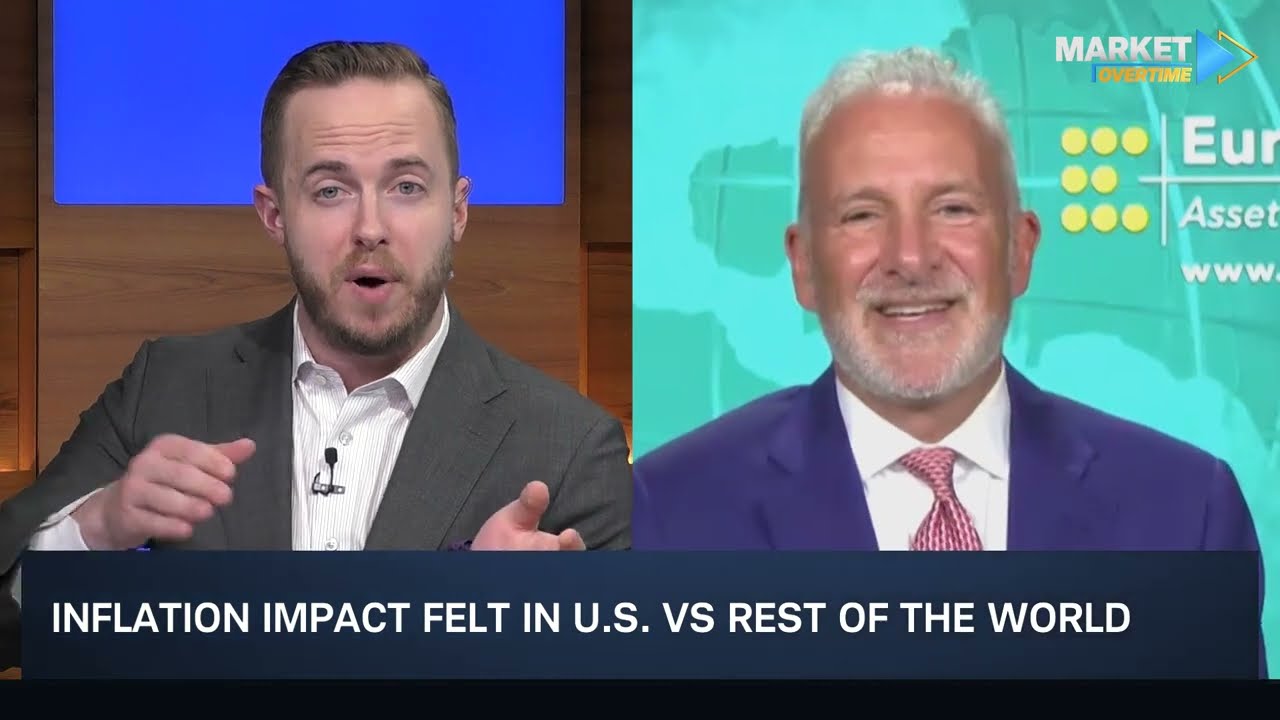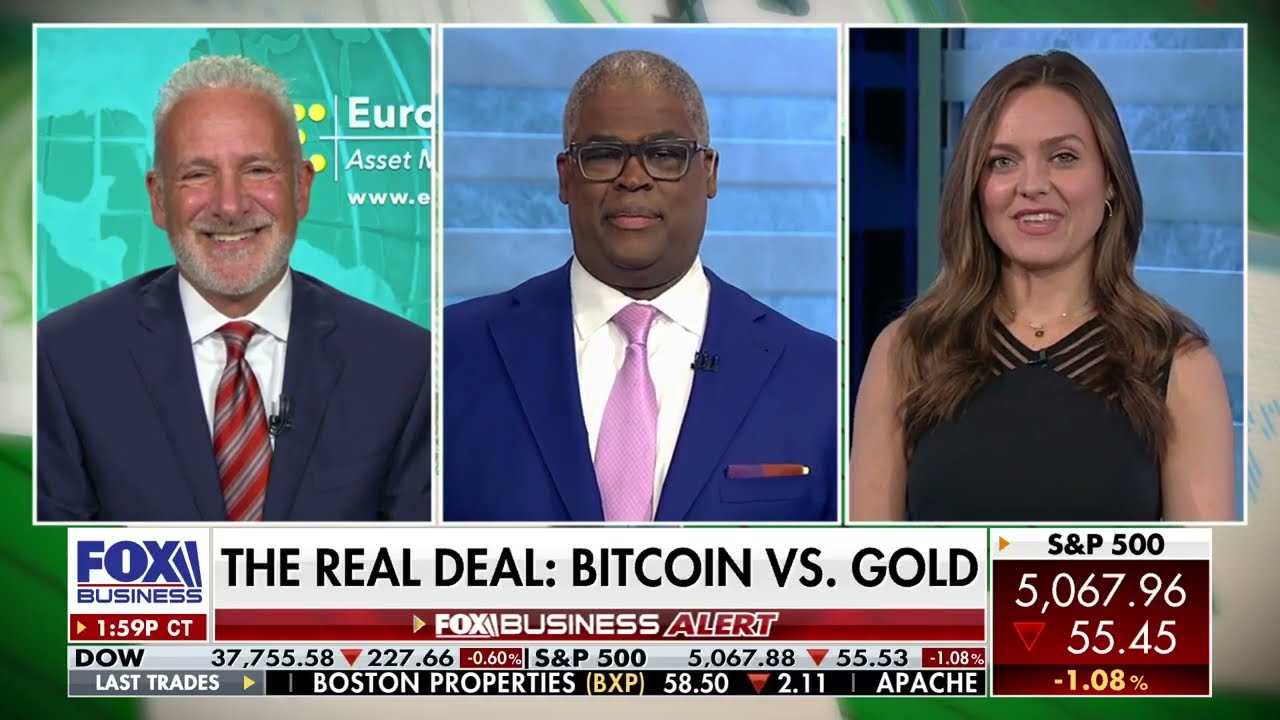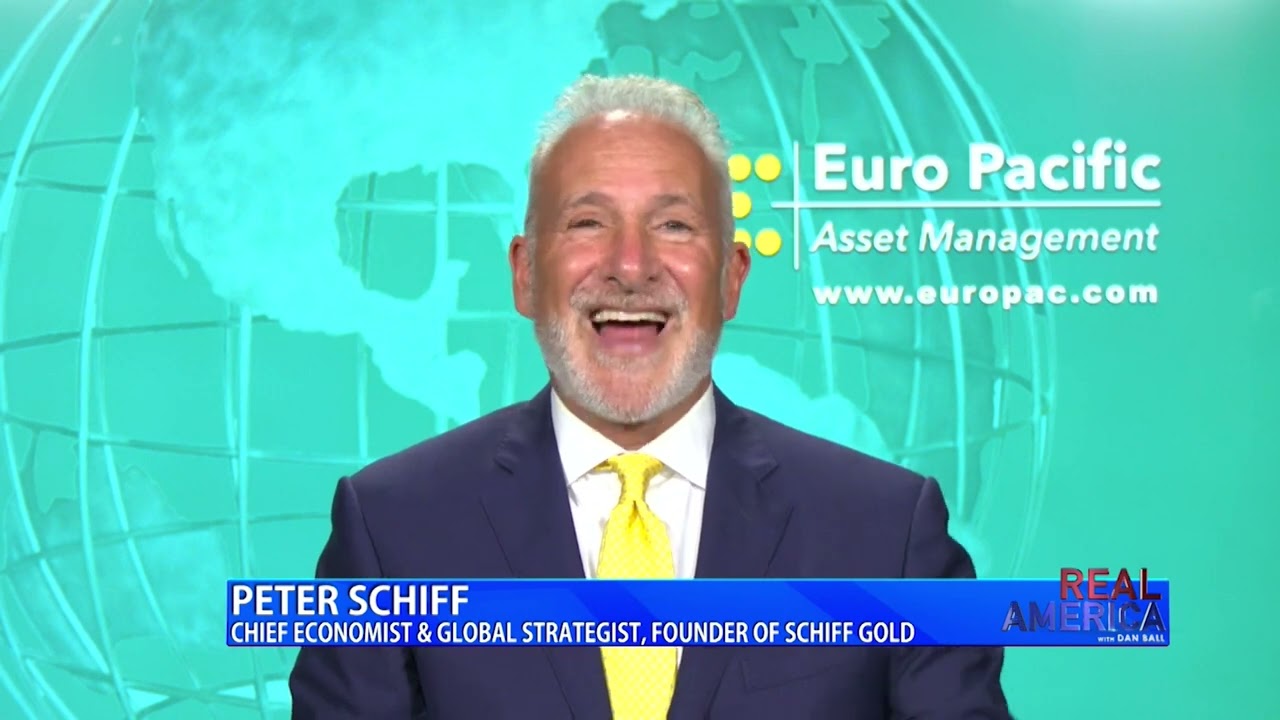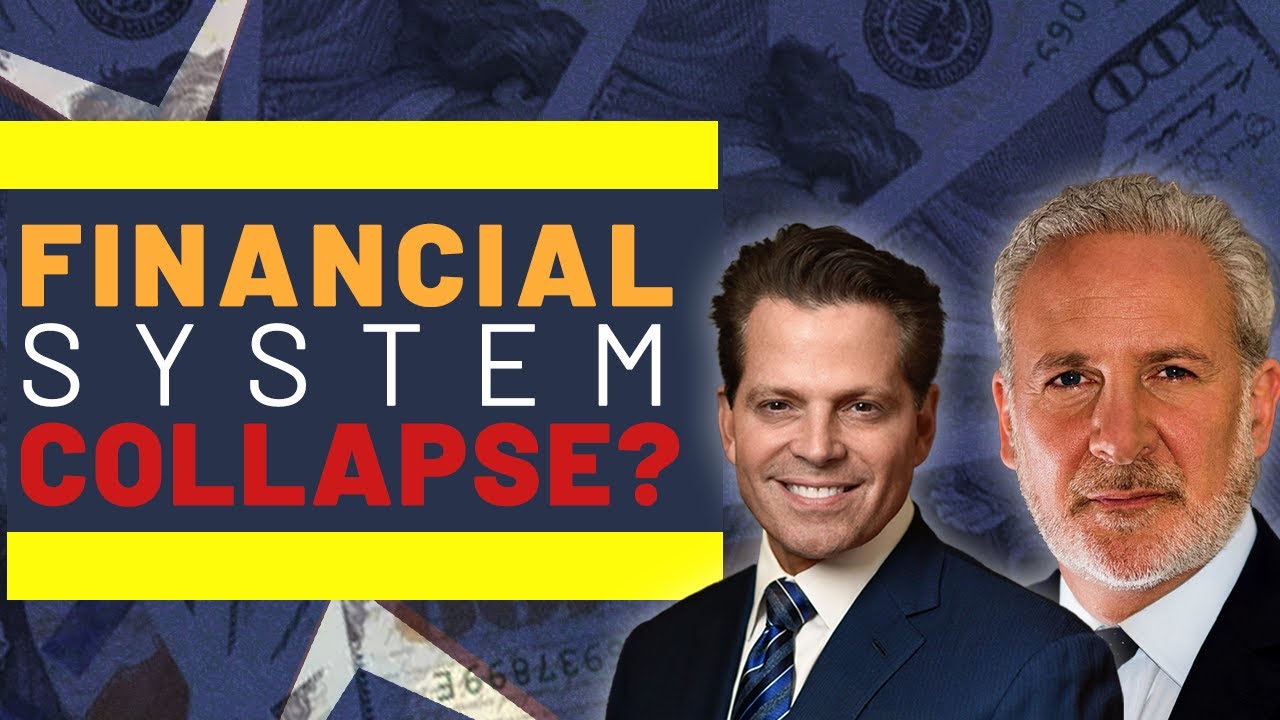Stocks Are in a Bubble and the Fed Knows It (Video)
Peter Schiff appeared on RT last night to discuss Janet Yellen’s testimony, the Federal Reserve’s schedule for raising interest rates, the direction of the US economy, and stock buy backs that indicate a bubble in the stock market.
Highlights from Peter’s interview:
RT: What stood out the most for you in [Janet Yellen’s] remarks?
Peter: I think the most important aspect was in her prepared statement, where she read the text that they had carefully scripted. She said that at some point in the future the Fed is going to have to begin thinking about raising interest rates. I think that’s very interesting, because she didn’t say, ‘At some point in the future, we’re going to raise rates.’ All she said is that they’re going to start to think about raising rates. Which makes you think, what have they been thinking about all this time? … The Fed has no intention of raising interest rates… If they did, they’d prick the very bubble they spent so much time inflating…
RT: Peter, were you at all surprised by her negative comments on the Audit the Fed movement?
Peter: No, not at all. Why would the Fed want to be audited? You know, the irony of it is – and I think one of the Congressmen today actually pointed this out – Yellen says look, ‘We don’t want to politicize the Fed.’ When, of course, the Fed is totally politicized right now. Normally the reason you don’t want to have politics involved in the Fed, is because there will be pressure for the Fed to print a lot of money, monetize government debt, try to artificially stimulate the economy to help politicians get elected. Well, that’s exactly what the Fed is doing right now. All the criticism coming from the Republicans is that the Fed is too easy, that he Fed has to stop printing money, that they have to raise interest rates, stop quantitative easing. So what the Congress is actually trying to do is reign in a recklessly political Fed that is trying to reelect incumbents… The Fed is acting in a highly political manner. Meanwhile, they’re trying to pretend the reason we can’t audit them is because they don’t want to be politicized. It’s completely ridiculous.
RT: What about the US economy? Does it support the all-time high in shares that we’ve seen?
Peter: No, it’s the Fed that supports the all-time high in shares. It’s irrational exuberance. It’s cheap money. Look, the economy is not strong. We have a bubble. It can’t exist without the Fed’s constant supply of air. In fact, I think just not doing QE4 is enough to deflate this bubble, let alone raising interest rates. So I think we’re going to get QE4. Ultimately, for the people who believe the Fed – If people think the Fed is going to be raising rates, they should be selling stocks. Because if the Fed actually were to tighten and to shrink its balance sheet, the stock market would get clobbered. the only reason I don’t think he stock market is going to be destroyed 50% down or more, is because I don’t believe the Fed is going to embark on a tightening campaign. I’m confident they’re gong to do QE4. That’s the only reason I’m not more negative on the market than I am. But it is extremely overvalued, just the way it was in 1999 or 2008. It’s very dangerous to be buying US stocks, but it’s also very dangerous to own US currency. So I don’t think people should just sit on the sidelines in dollars. They do have to invest. I just think it makes more sense to look beyond the United States, selectively, at the countries that are in much better shape…
RT: How about globally? What are you seeing as places to avoid and places to buy?
Peter: There’s still a lot of problems in Europe. You have to be careful about where you invest there. Not all the emerging markets are the same. There are problems all around the world. It’s all about avoiding those pitfalls, avoiding the land mines while you’re trying to find the gold mines. Of course, many of the gold mines are literally gold mines. There’s plenty of opportunities outside that sector. In general, I look at countries that have fewer regulations, lower taxes. Countries like Singapore, Hong Kong, New Zealand, Switzerland, are just a few. Those countries right now are undermining their own currencies… They’re the smart kids in the class, but they don’t want to get a good grade, because they don’t want to screw up the curve for all the dumb kids. So they’re deliberately dumbing down their own [currency] scores…
RT: What sectors of the US financial markets look attractive to you right now?
Peter: I don’t think anything look attractive in the US right now. Certain things look less attractive. I don’t want to be in the bond market. There’s a big bubble there. I don’t think you want to be in the retailers or the homebuilders or the financials. Certainly, there’s a lot of social media type companies. Companies that have no earnings or no prospects of earnings. They’re trading on hype or hope. I think some of the multinationals. They’re going to go down because they’ll have some earnings problems because of the strong dollar. But because I think the strong dollar is going to be short-lived, there may be some opportunities as some of these stocks come down on weaker earnings.
RT: Why would HP buy its own shares when its businesses are falling apart, it’s firing employees by the tens of thousands, and its stock price is declining? What am I missing?
Peter: One of the reasons they’re probably firing workers is so they can use the money they would have paid in salary to finance these share buybacks. Of course, a lot of the money that is going to finance the share buybacks is not going into legitimate capital investment, which means they’re not going to need their workers anyway. They’re squandering the money they should be spending on planned equipment on buying back their overvalued stock. This is the game that Wall Street is playing. Lever up, lay people off, and use the savings to buy back your own stock so that you can create higher stock prices, so the executives who are compensated with stock options can cash out and make a lot of money. Look, this market is an accident waiting to happen. The Fed knows that. It’s another reason they don’t want to raise rates, because they don’t want to prick the stock market bubble
Get Peter Schiff’s latest gold market analysis – click here – for a free subscription to his exclusive weekly email updates.
Interested in learning more about physical gold and silver?
Call 1-888-GOLD-160 and speak with a Precious Metals Specialist today!



 Peter recently appeared on Market Overtime with Oliver Renick for an interview. In their wide-ranging discussion, Peter speaks on monetary policy, the reliability of inflation data, and reasons to avoid Bitcoin.
Peter recently appeared on Market Overtime with Oliver Renick for an interview. In their wide-ranging discussion, Peter speaks on monetary policy, the reliability of inflation data, and reasons to avoid Bitcoin. Peter recently appeared on Fox Business to discuss Bitcoin’s recent performance. In this segment, he takes on Natalie Brunell, host of the podcast Coin Stories, in a friendly debate on the merits of crypto and precious metals.
Peter recently appeared on Fox Business to discuss Bitcoin’s recent performance. In this segment, he takes on Natalie Brunell, host of the podcast Coin Stories, in a friendly debate on the merits of crypto and precious metals. On Thursday, Peter appeared on OAN’s Real America with Dan Ball to discuss the U.S. Strategic Petroleum Reserve, the costs of home ownership, and the debt crisis. Peter argues the Biden administration won’t be able to refill the reserve, given oil’s 22% price increase this year. With the CRB exploding, Jerome Powell’s claim that inflation is coming […]
On Thursday, Peter appeared on OAN’s Real America with Dan Ball to discuss the U.S. Strategic Petroleum Reserve, the costs of home ownership, and the debt crisis. Peter argues the Biden administration won’t be able to refill the reserve, given oil’s 22% price increase this year. With the CRB exploding, Jerome Powell’s claim that inflation is coming […] Last week, Peter was interviewed on Speak Up with Anthony Scaramucci. In their conversation, they covered a wide range of important topics, including inflation, the fate of the dollar, and the trade-offs between gold and cryptocurrency.
Last week, Peter was interviewed on Speak Up with Anthony Scaramucci. In their conversation, they covered a wide range of important topics, including inflation, the fate of the dollar, and the trade-offs between gold and cryptocurrency.  This weekend, Todd Sachs interviewed Peter on the state of the economy. They discuss the parallels between now and the 2007-2008 housing crisis, the role of economic sentiment in voters’ opinions, and why foreign central banks are losing faith in the dollar.
This weekend, Todd Sachs interviewed Peter on the state of the economy. They discuss the parallels between now and the 2007-2008 housing crisis, the role of economic sentiment in voters’ opinions, and why foreign central banks are losing faith in the dollar.
Leave a Reply